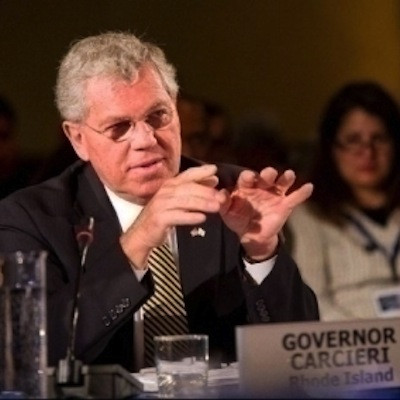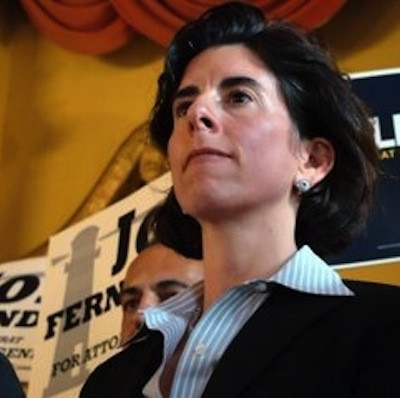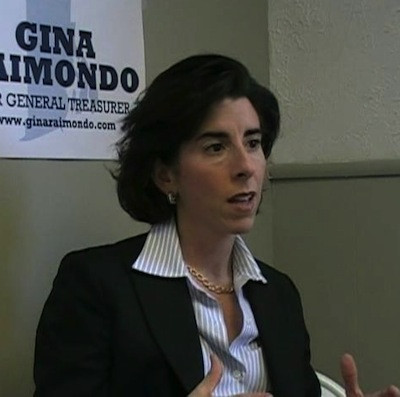Michael Riley: Pension Obligation Bonds? Oh My!!
Tuesday, September 23, 2014
Pension Obligation Bonds are debt instruments issued by a Governmental entity. The purpose is to fund all or part of the Unfunded Actuarially Accrued Liabilities (UAAL) for pension and/or OPEB. Theoretically the goal of issuing POB is to lower long term funding costs for the system.
They have been in the news lately not as “saviors” but as anchors that contributed to the bankruptcy filings in Stockton, Ca. and Detroit, MI. To quote the infamous Jon Corzine:
“It’s the dumbest idea I ever heard,” Jon Corzine told Bloomberg.com in 2008 when he was still governor of New Jersey. “It’s speculating the way I would have speculated in my bond position at Goldman Sachs.”
GET THE LATEST BREAKING NEWS HERE -- SIGN UP FOR GOLOCAL FREE DAILY EBLASTWhat Do Candidates for Providence Mayor Think?
This comment by Corzine and the general failure of Pension Obligation Bonds the last several years as an “easy way out” for politicians, seem to fly in the face of Buddy Cianci’s or Jorge Elorza’s potential solutions to deal with potential bankruptcy in Providence should they be elected. Republican candidate Dan Harrop has suggested forcefully that the better alternative is a “reset” produced by a receivership filing and a renegotiation of all contracts to the city by a receiver. Elorza has basically avoided any discussion of city finances and any solutions, leading me to believe he is inexperienced and knows little about finance or is unprepared for the difficult circumstances he will face if elected.
Buddy Cianci, however, is on public record supporting POBs and has on several occasions in Investment Commission Meetings in Providence argued for issuance. These linked minutes make for fascinating reading as Cianci reveals he twice needed legislators’ approval and could not get it.
MAYOR CIANCI: The pension obligation bonds are up at the State House now. And as a matter of record, the pension obligation bonds, if we had incurred pension obligation bonds eight years ago when it was brought to us by Fleet, we would have increased our portfolio by about $100 million dollars. That’s the number that was run by Quick and Reilly for me just two weeks ago in New York. It was a little over a hundred million. If we had taken – they took the statistics of what we would have borrowed, and what we would have borrowed and what we would have made. And even now it was a hundred and something million.
So clearly Mr Cianci regretted his not being able to “time the market” in 1990 and now was ready to do it again in 2002. Interestingly in 1990, Pension Obligation Bonds were only a few years in existence and also, during that same time period 5 and 6% COLAs were being issued by Cianci’s administration. There was an implicit set of economic assumptions that went into the COLA decision while at the same time seeking a bundle of taxpayer financed cash to place bets with.
Oakland, California launched the first pension obligation bond in 1985, at the time it appeared to be a reasonable strategy. It qualified as a tax-free bond that could be issued at the lower municipal bond rates. A state or city could then pivot and invest the funds in safe securities - a corporate bond, for instance - at a slightly higher rate. That arbitrage made sense.
However, the Tax Reform Act of 1986 ended that strategy by prohibiting state and local governments from reinvesting for profit the money from tax-free bonds.
Nevertheless over the subsequent 30 years many “taxable” POB’s were issued almost all by cities towns or states in severe financial distress. The names are commonly associated with distress still today and many have since declared bankruptcy or something close to it (states can’t declare Bankruptcy). Illinois 2003, New Jersey 1997, Wisconsin 2002, LA 1994, Philadelphia 1999, Detroit 2005, and Chicago Transit 2008 are just some of the 400 issuances since 1986 totaling $57.6 billion.
What About Statewide Candidates?
So we know Buddy Cianci will likely recommend POB’s if elected but how do the other candidates feel about this risky solution? It’s also conceivable that the next Governor, Treasurer and Mayor will all have something to say about Providence POB’s. I think we should know what they believe especially because RI Legislative law passed late in 2014 cycle exposes State taxpayers should a POB bond backfire. That second Central Falls bailout in June 2014 makes the State and its taxpayers largely responsible for bailing out any pension plan, Providence and several other towns on the tipping point so any municipal POB bet now becomes a state taxpayer bet by proxy.
It is interesting to note the universal Democratic opinion is that “stocks” are too risky and should be no part of Social Security portfolios. Yet in municipal and state pension plans they have huge equity exposure. And now what? Will they contemplate issuing debt to buy stocks? That’s what a POB is.
Can Fung, Raimondo, Almonte, or Magaziner assure us they will not bail out Providence on the state taxpayers dime? Should Tiverton or Charlestown citizens be exposed to tax hikes caused by Providence profligacy and mismanagement or a pension obligation bet?
A POB in Providence without a corresponding reset of contracts and imbedded costs is an invitation to disaster. Remember, it’s not the politicians’ money; he just rolls the dice.
Michael G. Riley is vice chair at Rhode Island Center for Freedom and Prosperity, and is managing member and founder of Coastal Management Group, LLC. Riley has 35 years of experience in the financial industry, having managed divisions of PaineWebber, LETCO, and TD Securities (TD Bank). He has been quoted in Barron’s, Wall Street Transcript, NY Post, and various other print media and also appeared on NBC news, Yahoo TV, and CNBC.
Related Slideshow: Timeline - Rhode Island Pension Reform
GoLocalProv breaks down the sequence of events that have played out during Rhode Island's State Employee Pension Fund reform.
Related Articles
- Michael Riley: Municipal Pension Commission Comes Unglued
- Michael Riley: State Pension Fix in Limbo as Municipal Debt Grows
- Michael Riley: Don’t Pay
- Riley: CF Bailout: Largest Theft of Taxpayer Money in RI History?
- Michael Riley: From Head-start to Harvard to the Hoosegow?
- Michael Riley: From Head-start to Harvard to the Hoosegow Part 2
- Riley: Let the Rhode Island Treasurer’s Race Begin with Facts
- Michael Riley: Pension Obligation Bonds? Oh My!!
- Michael Riley: Failed Pension Commission Ponders Permanent Oversight Commission
- Michael Riley: West Warwick and Gallogly Pull Hoax on Taxpayers
- Michael Riley: RI Municipal Pension Study Comm. Is in Failure Mode
- Michael Riley: 38 Studios Insider Trade and Municipal Fraud
- Michael Riley: GASB 68 Portends Huge Problems for City and State
- Riley: Mancini, Wainwright and Taveras Part 2
- Riley: Taveras, Mancini & Wainwright Investment Counsel, LLC
- Michael Riley: The RI Treasurer Democratic Primary Race Gets Uglier
- Michael Riley: Rhode Island Treasurer is About Integrity and Experience
- Michael Riley: Can Taveras Clean Up His Act for the New Mayor?
- Riley: RI Treasurer’s Race Part 4: Public Fund Summit 2014
- Riley: Caprio Track Record Good, Seth Magaziner Claims Questioned
- Riley: Cranston and Mayor Fung Play the Hand that was Dealt
- Michael Riley: Rhode Island’s Potential Pension Nightmare
- Michael Riley: These RI Cities + Towns Could Be Next in Bankruptcy
- Michael Riley: Moody’s Lowers the Bomb…Look Out Rhode Island
- Michael Riley: Taveras and Polisena No-Shows at Pension Commission






















